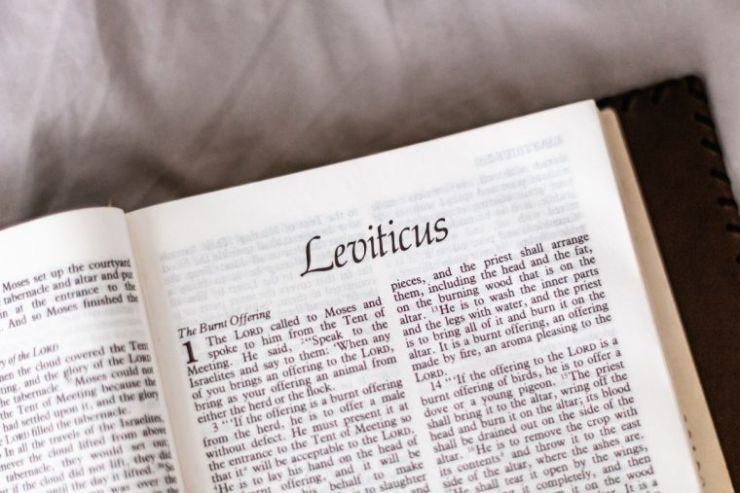
Jewish academic and Hebrew scholar Irene Lancaster on why for many Jews, Leviticus is the most important book of all.
If asked, most Jews would not cite Leviticus as their favourite book of the Torah!
Genesis is all about beginnings, sibling rivalries and dreams. Exodus is the call to freedom and the miraculous overcoming of plagues. Numbers describes the trials and tribulations of the nascent Jewish nation and Deuteronomy prepares for entry into the Promised Land.
Yet, traditional families send their children to school aged three, laden with cakes and the first words of the third Torah book i.e. Leviticus iced onto them to lick off during the first lesson.
When the 2nd Temple was destroyed in 70 CE, together with the sacrifices accompanying its existence, the Sages continued to study the laws of korbanut (sacrifice) in great detail and still do. Both the Jerusalem and Babylonian Talmud devote reams to Temple service and sacrifice, even though the Temple itself was no more.
Why should this be? In Genesis 15, at the Covenant of the Pieces, G-d promised the Patriarch Abram that reading and studying the laws of service and sacrifice would be tantamount to offering the sacrifice and if done in the right way would lead to forgiveness of sins.
What is more, even in exile, concentration on korbanot (sacrifices) can grant us the merit to return to the Land.
How can this be?
A Korban actually means a bringing near, a closeness to G-d, a connection to G-d. In a similar vein, the Land of Israel also connects us to G-d. It is where His presence resides.
A Korban brought without impacting our actions in a positive way is, at best, worthless, and, at worst, an abomination, a message which G-d has relayed through His prophets again and again.
It's not the Korban that matters, but the internal change it must elicit. Words can be just as effective, perhaps more so, than the actual slaughter of an animal. Our prayers correspond to the daily sacrifices. Prayer is the equivalent to the bringing of sacrifices. The Temple service does not need a Temple; it needs a pure heart.
Bringing korbanot can be meaningless, even hastening the exile. But the recital of korbanot can bring redemption.
This message is spelled out by the prophet Jeremiah in the accompanying Haftorah reading to our Leviticus passages. The offerings should be brought to the Mishkan, G-d's indwelling place on earth, but the people should never forget that these are but tools for the service of G-d, not meaningless, insincere rituals.
For in Chapter 9:22-23, Jeremiah has this to say as his closing words for the reading:
"Let a wise man not glory in his wisdom, nor the strong man in his strength, nor yet the wealthy man in his wealth. Only in this should a person glorify himself: in discerning and knowing Me, for I am the Lord, Who performs deeds of loving kindness, justice and charity on earth. For it is in these I delight, says the Lord."
So it is not a matter of either or, but of both. The minutiae of life are essential, and the right attitude based in humility is intrinsic to how the minutiae are carried out.
And that is why the Book of Leviticus centres the entire Torah and is read during this early spring time, between the Purim escape from genocide and the upcoming freedom festival of Pesach. And why, for many, it is the most important Book of all.




